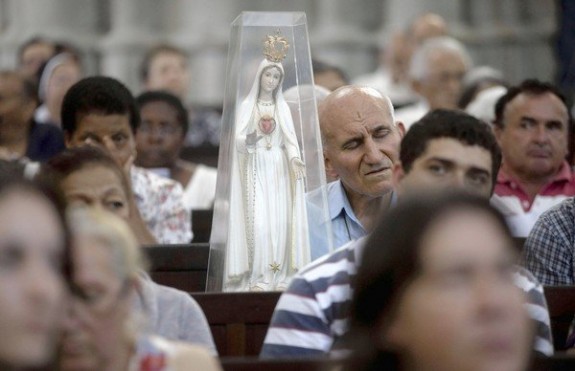From the Los Angeles Times:
Next month, 19 cardinals from Latin America will be among the 117 from around the world expected to be eligible to participate in the secret meetings to choose a replacement for Pope Benedict XVI.
And though the chances for a Latin American pope being elected are a long shot, regional leaders are hoping to have more influence than before both in the selection process and in addressing many of the major problems facing the church in general and Latin America specifically.
Among them: the growing secularism and corruption of faith that Benedict so frequently complained of and the church’s sex abuse scandals, involving clerics in Mexico, Chile andBrazil.
Issues of particular concern for Latin America include the evangelical religious faith that has been rapidly siphoning off church members and the lack of fervor for the current pope.
“Latin Americans have for a very long time felt they should get more say in choices and policy decisions; they feel that because of their size, they should have more influence at theVatican,” said Margaret E. Crahan, an expert on the church at Columbia University’s Institute of Latin American Studies. “But the Europeans still dominate.”
Many Latin American Catholics never warmed completely to Benedict, in part because of his terse style and in some cases because of his conservative ideology. He remained a distant, rigid figure to many, despite two high-profile visits to the region, and they speak now of hope for a new pope who would be more personable and accessible.
The next pope “will have to take the church from this image of paralysis … and find a clear, agile way to preach the Gospel,” said Hugo Valdemar, spokesman for the Archdiocese of Mexico City, the world’s largest.
Contrary to popular opinion, and perhaps wishful thinking, cardinals who gather in the Sistine Chapel for the pope-choosing conclave are not believed to generally vote in geographic blocs. Latin American cardinals, like their counterparts the world over, tend to seek guidance from members of their same order, peers worldwide who are friends, and, especially, cardinals based in Rome who are most familiar with the workings of the Vatican and in the best position to promote or thwart contenders.
Photo: Andre Penner / Associated Press












